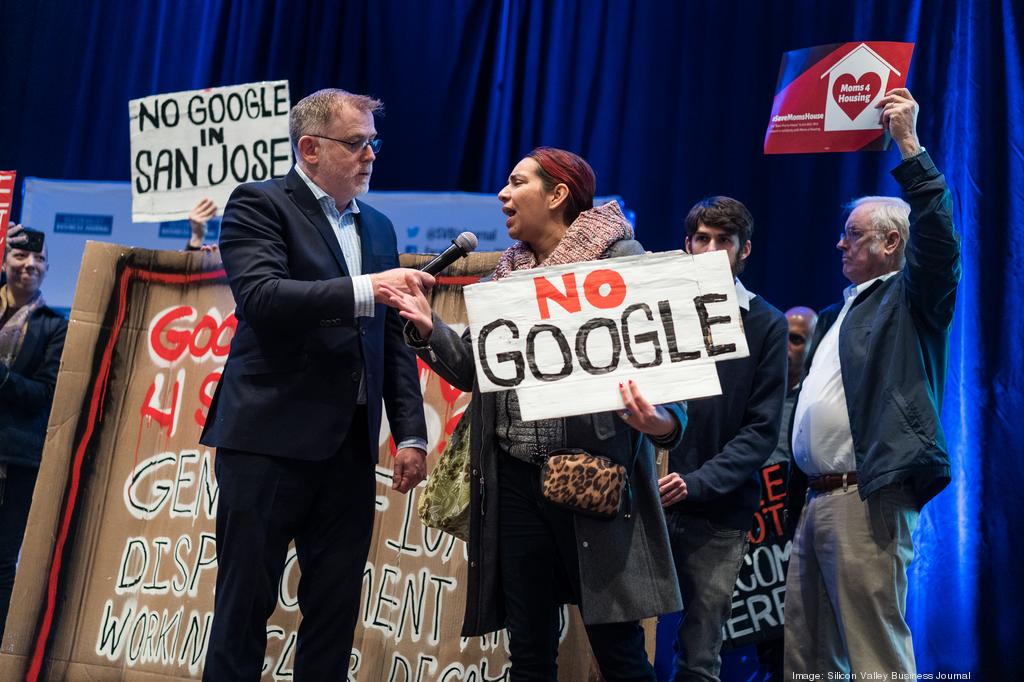
Take my microphone, please
by J. Jennings Moss
Originally published January 22, 2020 in the Silicon Valley Business Journal.
Last Friday morning, as the Silicon Valley Business Journal started its first event of the year — a deep dive into the future of downtown San Jose, with a sell-out audience of more than 400 people — I finally got a chance to breathe.
Everything was in place, the panelists were ready to go, and Mayor Sam Liccardo was about four minutes into a 15-minute keynote when the commotion began.
“Hell no! No way! No Google in San Jose!” went the chants from about 20 protesters who marched into the Fairmont San Jose hotel ballroom. They carried posters and banners sending a pointed message to Google and its plans to create an 80-acre, mixed-use campus on the west side of San Jose’s downtown.
The protesters swept through the crowd and took over the stage. Liccardo stopped speaking, and he stood quietly, watching what was taking place.
The chants continued: “Check this out. Make it clear. Google is not welcome here!”
I knew I had to do something, anything, to quiet the protest.
I tried to appeal to them with a string of “please, please, please,” my voice rising with each one. Then it hit me: Find a protester who I could interview, which hopefully would lead to the chanting to end. I tried to find a leader — “we operate by consensus,” one person said — before my eyes caught one woman’s and she agreed to talk.
For a few minutes, I managed to get control: “We respect your chants, but we want to know why. Why are you here this morning?” I asked the protester, who now had a chance to speak to the brokers, developers, business leaders, elected officials and others in the audience.
“While you want to ignore it, every single one of you should be ashamed of yourselves,” said the protester, whose name I did not get. “You come here and talk about opportunity and you talk about building when people are dying in the streets. And the inequality that comes from people in this room.”
When I asked her what she and the others wanted, she said: “Community-controlled development without displacement. Where the community is a steward. Where we don’t have private corporations buying up all of San Jose.” In her view, city rules get changed when billions of dollars are stake; unfair backdoor deals with Google were made; business people were calling the shots.
She suggested that none of the people in the audience, members of the city’s business community, actually lived here. I turned to the crowd and asked who was a resident: I’m guessing 70 percent of the hands went up. And with that, the chanting started all over again.
By this point, there was no more I could do. San Jose police officers arrived a short time later, and when the cops hit the stage, the protesters peacefully left.
With the protest over, we resumed the program and several panelists spoke to those who are fearful about San Jose’s future. The mayor said San Jose had a compassionate community. Kim Walesh, the city’s economic development director, focused on the need for equitable development.
And Google development chief, Alexa Arena, whose presence was the catalyst for the protests, said the company takes its responsibility to San Jose’s residents very seriously.
Google’s sweeping development is, understandably, destabilizing to those who will feel pushed out, no matter how many steps a corporation takes to say “we’re listening.” But the act of listening takes two parties, and the protesters we saw last week don’t seem all that eager to do it.